Metal Gear Solid Delta: Snake Eater is intended to revitalize the stealth action series: “we knew that if we didn’t do something, the Metal Gear Solid series would just vanish out of existence”
More than a fresh coat of paint
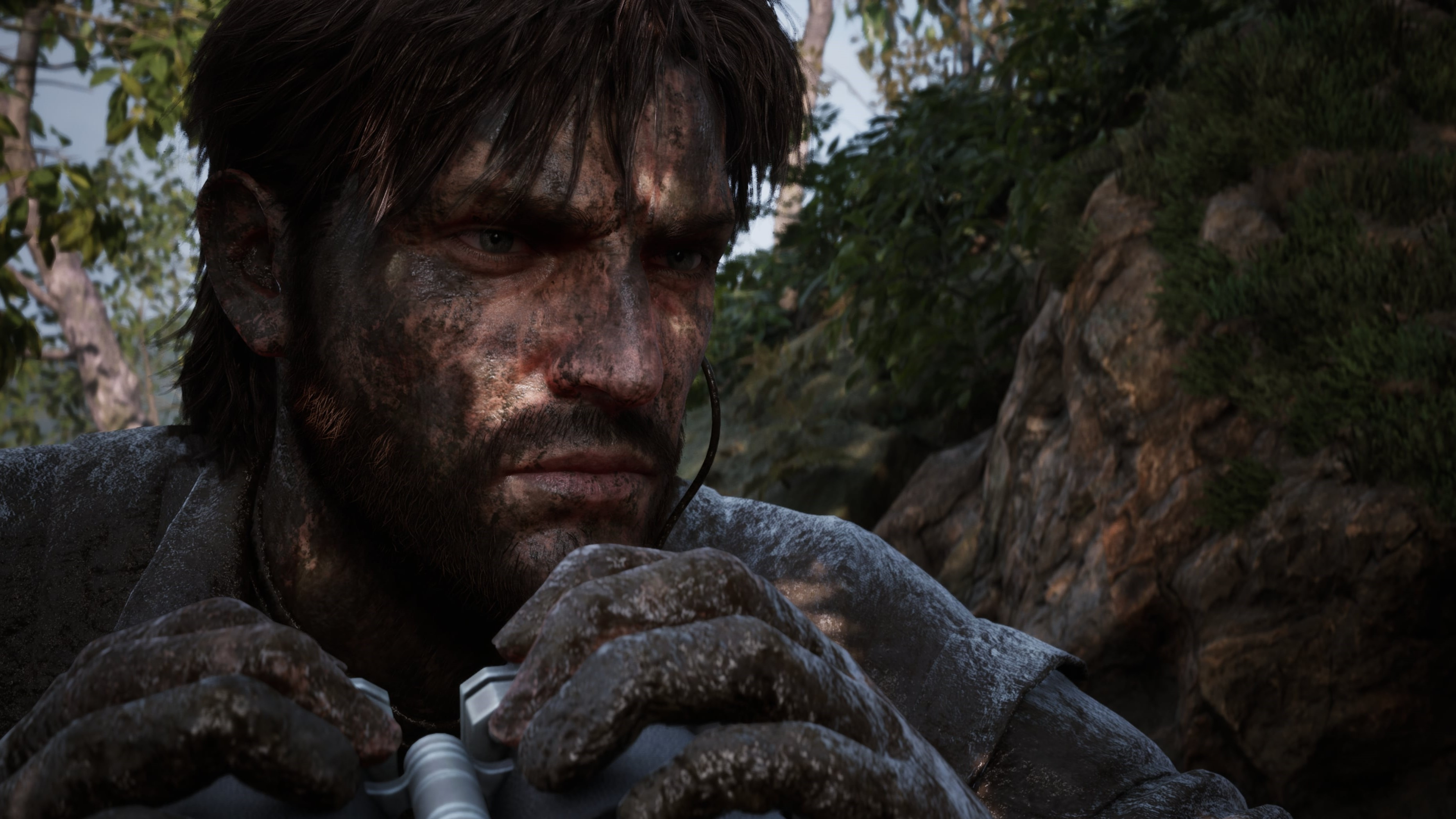
Sign up for breaking news, reviews, opinion, top tech deals, and more.
You are now subscribed
Your newsletter sign-up was successful
I went hands-on with an early slice of Metal Gear Solid Delta: Snake Eater at a preview event hosted by developer and publisher Konami. An ambitious current-generation remake of the third entry in the long-running and iconic Metal Gear Solid series, I was incredibly impressed by everything I managed to see in my time with its opening chapter, the Virtuous Mission.
Set in the jungles of Tselinoyarsk, a fictionalized region with close ties to the Soviet Union, at the height of the Cold War, this remake is already on track to be one of the best-looking titles of this console generation. Running on a PlayStation 5, environments were dense, richly detailed, and bursting with color. It’s incredibly impressive to behold but, despite all the visual upgrades, Metal Gear Solid Delta: Snake Eater is still immediately recognizable as Metal Gear Solid 3.
Every area I explored was a meticulous recreation of its appearance in the original release, right down to the location of hidden gear pickups and collectibles. Although animations have been overhauled, cutscenes still played out just as I remember.
The original voice acting has also been left completely intact and feels right at home with the wonderfully updated, high-fidelity character models. Even the overhauled control scheme, which now allows protagonist Snake to enter into a prone position with a rapid dodge roll, felt immediately intuitive and delightfully smooth. That said, while the option wasn’t available during my preview, the final release will still offer the ability to enable the original controls for those who prefer them.
A return to form
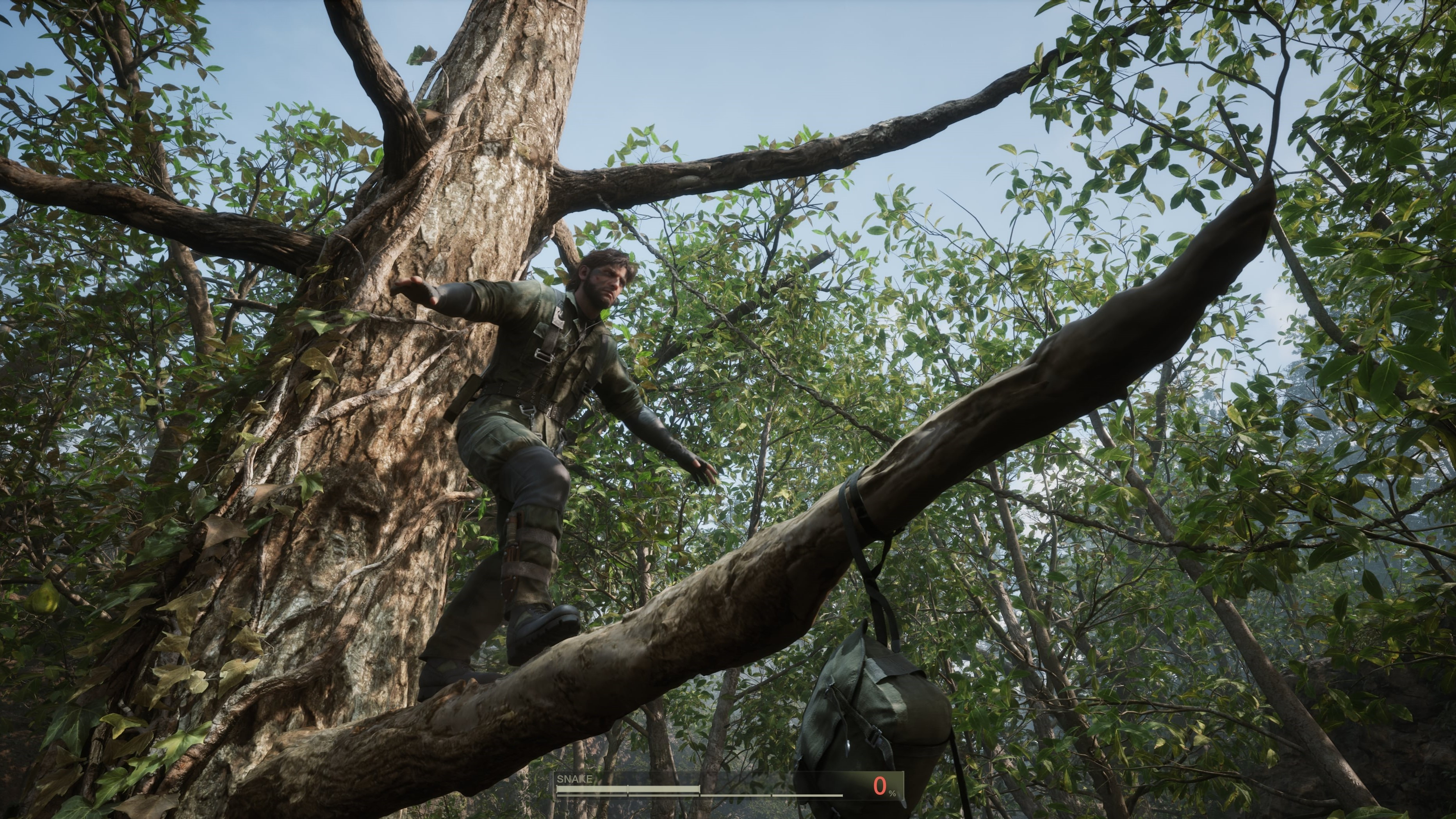
As the first title in the franchise since Metal Gear Survive back in 2018, Konami is facing a lot of pressure from fans to deliver. Taking a break from my play session, I spoke to producer Noriaki Okamura about the process behind modernizing one of the most acclaimed games of all time.
Foremost, I wanted to discover why the team decided that now is the best time for a remake rather than a new entry. “There’s lots of younger fans that do not know the series and we found that quite shocking,” Okamura explains via a translator. “Younger fans not only had not played the games but had not even heard of the series. We knew that if we didn’t do something, the Metal Gear Solid series would just vanish out of existence.”
“Delta is the game that we really want to have draw in new fans and be the reason why people want to either get into Metal Gear Solid for the first time or get back into the series,” he continues. As for why they chose to remake the third Metal Gear Solid game, “This is the very first in terms of storyline [...] if I was asked by a friend or anyone, a younger fan perhaps, which game they should start from, I would recommend Metal Gear Solid 3.”
Sign up for breaking news, reviews, opinion, top tech deals, and more.
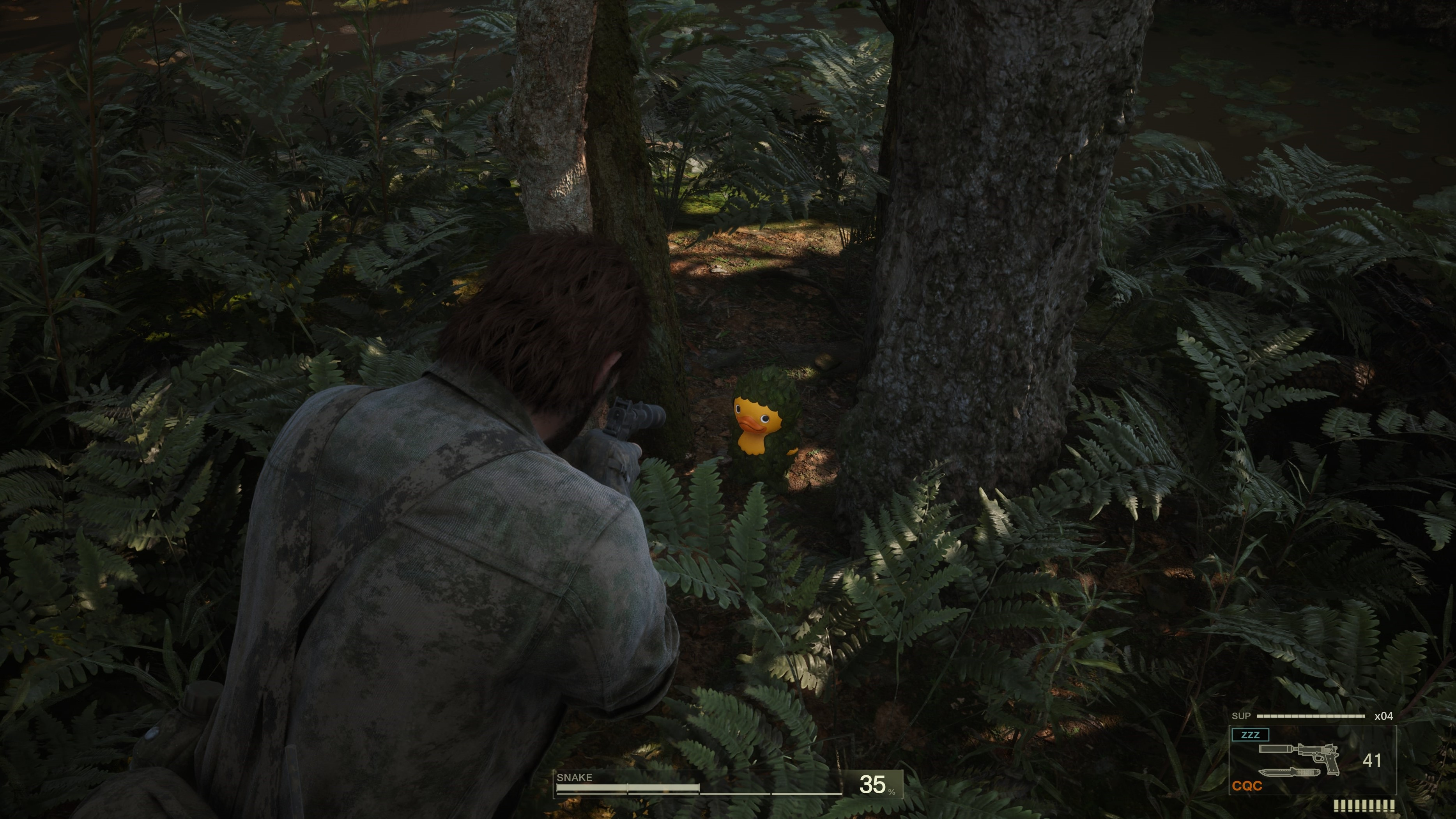
It’s been almost two decades since the release of Metal Gear Solid 3 on PlayStation 2, bringing countless technology innovations, but the team has been careful to maintain as much of the original experience as possible. “The graphics are something that we're really focusing on as obviously, graphics have improved a lot since 20 years ago, and the graphics have been improved as well as the performance for this game,” Okamura begins.
“But, to put it simply, I really want a new generation of fans to experience that same thrill and excitement that I originally experienced playing Metal Gear Solid 3 for the first time. I want to have that exact experience taken from the past and then put into the current generation now, and have people experience it the exact same way. There's probably things that we could do now that we couldn't do before, but rather than add new things, we'd rather just create that experience as faithfully as possible, as close to the original.”
Old and new
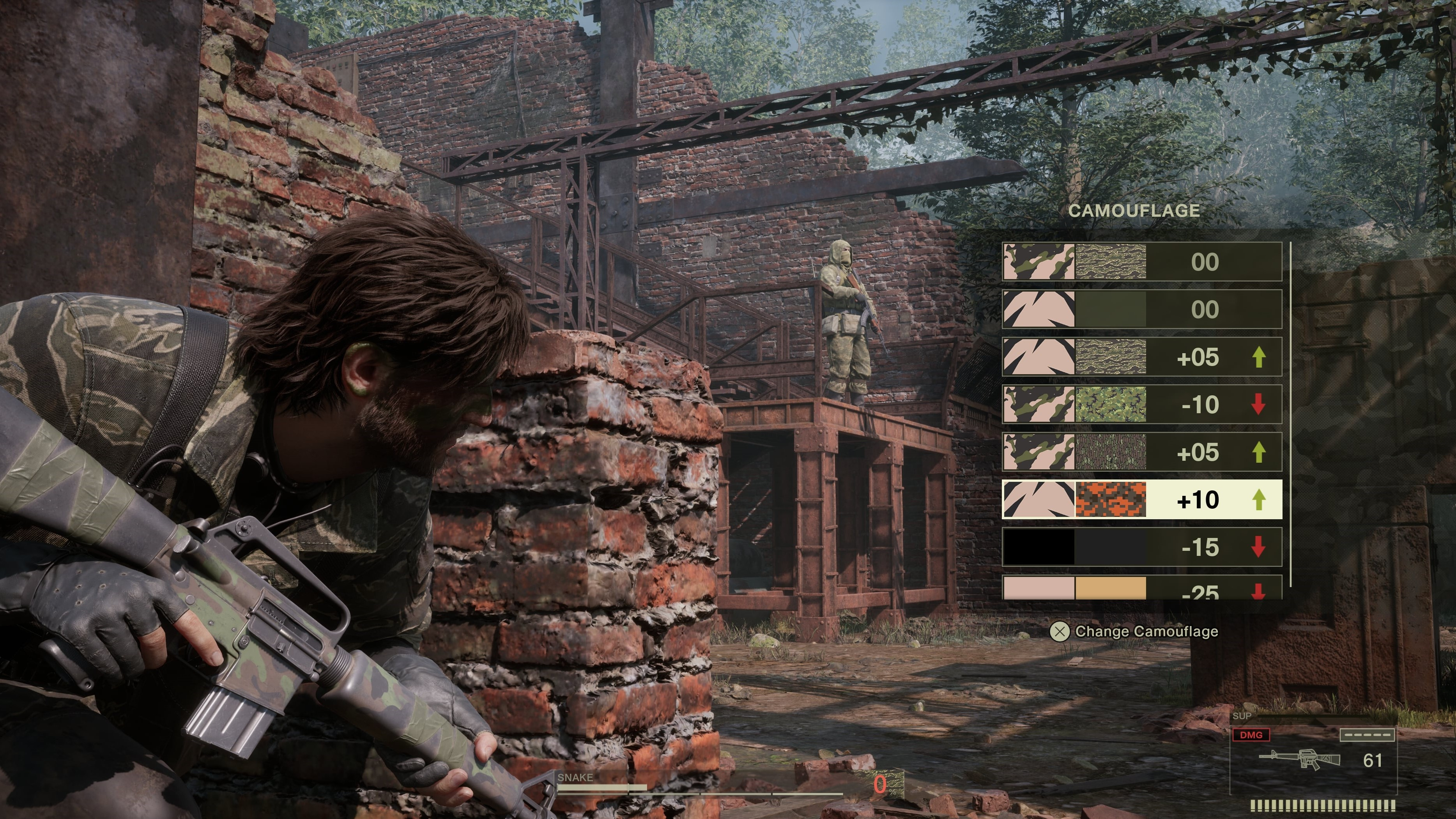
With the Metal Gear Solid: Master Collection Vol. 1, which contains a re-release of the original Metal Gear Solid 3, widely available on modern platforms often at discounted prices, I was keen to find out what makes a full-price remake like this worthwhile in comparison.
“If we just gave Metal Gear Solid 3 as it was to a younger generation who hadn't played the game before, they would look at the game and think ‘that looks really old, we don't want to play that.’ So we felt that the least that we need to do is upgrade the graphics to draw people in,” Okamura says. “But we realized that we can't just get away with just changing the graphics because then things like the character motion and the movements and the facial expressions didn't quite match up. Things didn't really blend that well. So we had to go in and change the movements of the characters and the animations to match those new graphics. Otherwise, they looked a little bit out of place.”
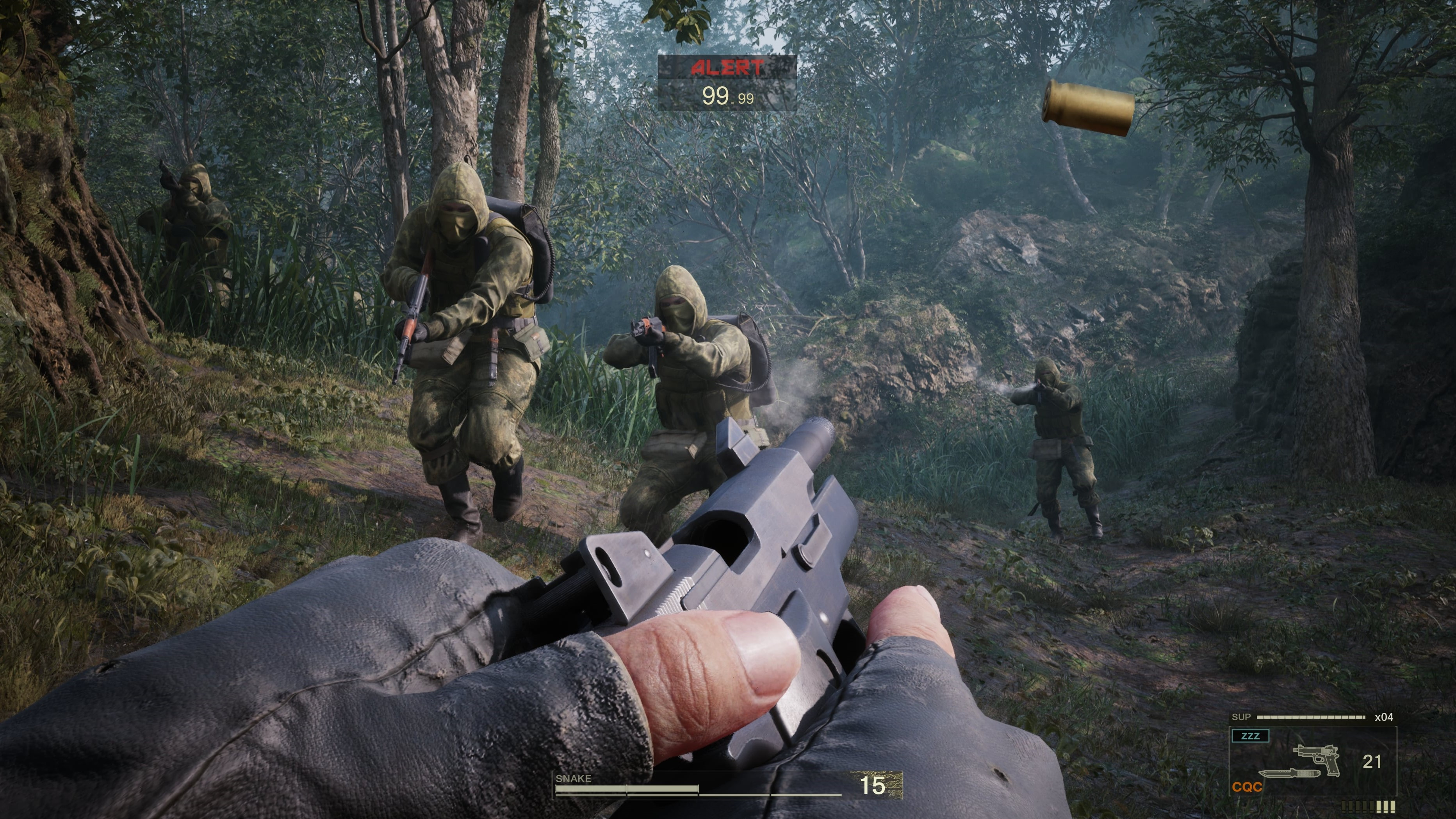
This remake isn’t just aimed at new players, though. For “the older fans, people that had already played the game when it first came out, the graphics have been updated quite a lot, so we would definitely like them to play the game and see it through a new lens and think, ‘Oh, this is what the characters look like with current generation graphics,’” Okamura suggests. “It would be quite nice for them to experience something that they've already seen before, but updated so well and looking much prettier than it used to be. We really believe that people who played the game originally will have a great time playing this remake as well.”
Whether you’ve already played Metal Gear Solid 3 or want to experience it for the first time, Metal Gear Solid Delta: Snake Eater is set to launch on PC, PlayStation 5, Xbox Series X, and Xbox Series S.
You might also like...
- PS5 Pro: the latest rumors and theories
- Indiana Jones and the Great Circle preview: shaping up to be a whip-cracking adventure
- Bloober Team on remaking Silent Hill 2: “we want to reimagine the original game and give it our own Bloober spin"

Dash is an experienced tech journalist who currently serves as the Gaming Editor at TechRadar, where he helps oversee coverage of video games and related products.
Before joining the team, he was Contributing Writer at PLAY (formerly Official PlayStation Magazine) and has also written articles for many of the UK's biggest gaming magazines including Edge, PC Gamer, and SFX.
Now, when he's not getting his greasy little mitts on the newest hardware or gaming gadget, he can be found listening to J-pop or feverishly devouring the latest Nintendo Switch otome.